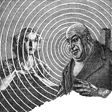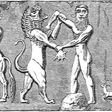
Past Life Memories
In this episode, Megan and Frank investigate the strange phenomenon of past life memories. Are past life memories evidence for reincarnation? Is what we remember a good guide to who we are? And how might a single identity span different lifetimes? Thinkers discussed in this episode include Plato, Pythagoras, Thomas Reid, J.M.E. McTaggart, and Michael Sudduth.
-----------------------
Hosts' Websites:
Email: philosophyonthefringes@gmail.com
-----------------------
Bibliography:
The Next Dalai Lama: Preparing for Reincarnation and Why It Matters to India
Claire White, Robert M. Kelly & Shaun Nichols, Remembering Past Lives
Thomas Reid, Essays on the Intellectual Powers of Man
Children Who Report Memories of Past Lives - Division of Perceptual Studies
The Case of James Leininger_ An American Case of the Reincarnation Type
Jim Tucker - Response to Sudduth’s “James Leininger Case Re-Examined”
The Science of Reincarnation—VIRGINIA Magazine
The Philosophy of Dr. McTaggart.
S2, Episode 6: The Self and Survival (Mar. 27th, 2018) – Hi-Phi Nation
New evidence shows false memories can be created | UW News
-----------------------
Cover Artwork by Logan Fritts
-------------------------
Music from #Uppbeat (free for Creators!):
https://uppbeat.io/t/simon-folwar/neon-signs
License code: ZMHYPZTDWFJ3QXU2



















